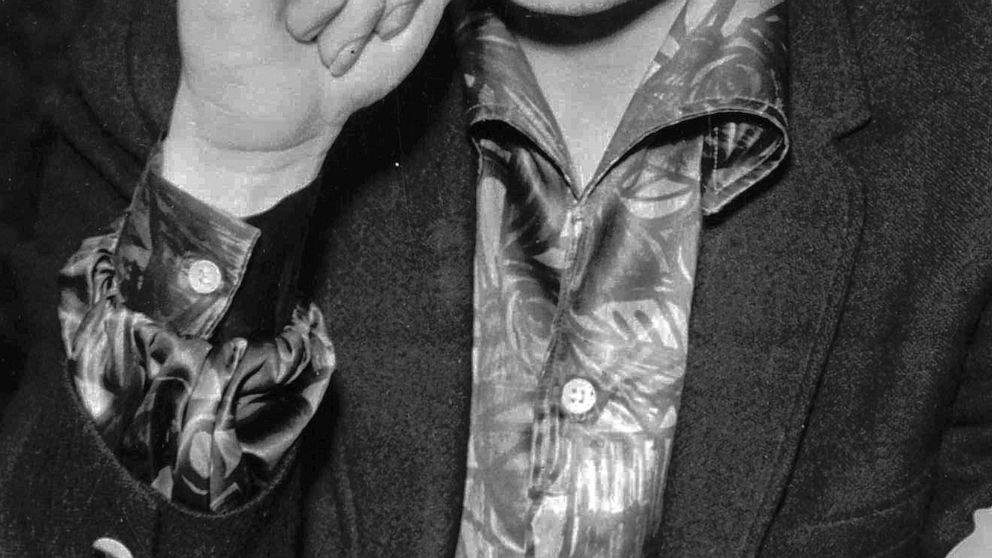Universal Music buying Bob Dylan’s entire song catalog
Bob Dylan’s entire catalog of songs, which reaches back 60 years and is among the most prized next to that of the Beatles, is being acquired by Universal Music Publishing Group
NEW YORK — Bob Dylan has sold publishing rights to his catalog of more than 600 songs, one of the greatest treasures in popular music, to the Universal Music Publishing Group for an undisclosed sum.
The catalog includes such modern standards as “Blowin’ In The Wind,” “Tangled Up in Blue,” “Knockin’ On Heaven’s Door,” and “Like a Rolling Stone,” a body of work that may only be matched for its breadth and influence by the Beatles, whose songs were re-acquired by Paul McCartney in 2017.
The songwriting legend earned an estimated $300 million from the sale, according to The New York Times, which first reported it.
Dylan, 79, topped the Rolling Stone list of the 100 Greatest Songwriters of All Time in 2015 and the song “Like A Rolling Stone” was named by the magazine as the best ever written. He won the Nobel Prize for Literature in 2016, the only songwriter to receive the award.
“Brilliant and moving, inspiring and beautiful, insightful and provocative, his songs are timeless — whether they were written more than half a century ago or yesterday,” said Sir Lucian Grainge, CEO of Universal Music Group, in a prepared statement Monday.
To give some indication of its value, Stevie Nicks recently sold an 80% stake in her music to the publisher and talent management company Primary Wave for a reported $100 million.
In cultural terms, Dylan’s catalog is “quite literally priceless,” said Anthony DeCurtis, a veteran music writer and contributing editor at Rolling Stone.
“It has been 60 years and it’s still going strong,” DeCurtis said. “There’s no reason to believe there’s going to be any diminishment in its significance.”
Song publishing has become an even more valuable asset in recent months, seen as a reliable long-term source of income in an industry where streaming has taken control and the live concert business has at least temporarily collapsed due to the coronavirus pandemic, said Alan Light, a veteran music writer who hosts his own SiriusXM show.
Companies like Universal compete with newer outfits like Primary Wave and Merck Mercuriadis’ Hipgnosis Song Fund to control the use of songs for advertising and placement in movies, television shows or video games.
While songwriters like Paul Simon, Joni Mitchell and Neil Young all have valuable catalogs, their work can’t match Dylan for its volume and significance, Light said.
Dylan’s songs have been recorded more than 6,000 times, by various artists from dozens of countries, cultures and music genres. Notable releases include the Byrds’ chart-topping version of “Mr. Tambourine Man,” Jimi Hendrix’s reworking of “All Along the Watchtower” and Adele’s cover of “Make You Feel My Love.”
The deal does not include rights to Dylan’s own recordings of his material. So, if Universal is approached to use Dylan’s recording of “Lay Lady Lay,” for example, it would have to be cleared by the artist.
Dylan first entered the public consciousness as part of New York City’s Greenwich Village folk scene during the early 1960s. Influenced by the bluesman Robert Johnson and folk singer, songwriter Woody Guthrie, he added a lyrical depth to his music. But when he brought an electric guitar on stage in 1965, he split the music community in what was then considered a radical departure for an artist.
The sale of Dylan’s musical catalog comes a few weeks after the Jewish-born songwriter’s musings about anti-Semitism and unpublished song lyrics sold at auction for a total of $495,000.
He’s never been a purist when it comes to commercial possibilities, having recorded advertisements for Victoria’s Secret and Cadillac.
Dylan has performed regularly even as he’s aged, so much so that fans have joked he’s been on the “Never-Ending Tour” since the late 1980s. Only the pandemic has grounded him.
He continues to record, with this year’s disc “Rough and Rowdy Ways” being well-received critically.
Judging from a tweet by David Crosby on Monday, other veteran musicians may be looking for their own deals. Crosby said he’s selling his catalog, too, noting that he can’t work because of the pandemic and that streaming has cut off record sales as a source of income.
“I have a family and a mortgage and I have to take care of them so it’s my only option,” Crosby said. “I’m sure the others feel the same.”
———
Associated Press Writer Hillel Italie contributed to this report.
![]()


